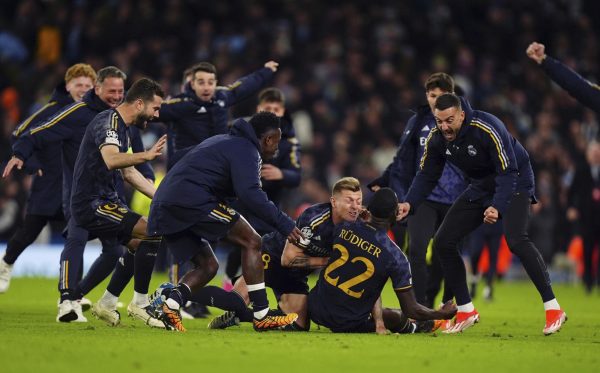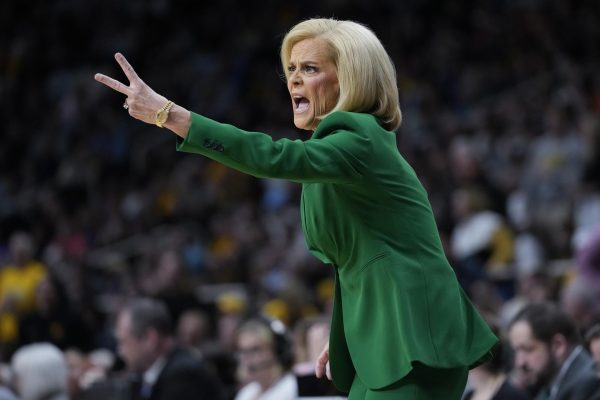IOC Crushes Little Leaguers’ Dreams
This year’s Little League World Series, usually a fun, good-spirited event, was absolutely depressing. While watching, I could not help but wonder how many of the young athletes were aware of the crusade being launched against their sport. As of 2010, with baseball and softball still off the Olympic agenda, the international future of baseball and softball and of the sports’ millions of players and fans around the world is looking quite grave indeed.
Having announced in 2005 that the two sports had been removed by secret vote from the 2012 Olympics, the International Olympic Committee (IOC) hinted at two major motives for their decision, neither of which I find to be particularly compelling arguments.
On the side of softball, the dominance of the United States during the Games of 1996, 2000 and 2004 was cited as justification for the sport’s removal. However, given the head start that a well-developed system of intercollegiate and youth leagues had afforded the American team when softball debuted in the Olympics, it makes a certain amount of sense that it would take a few years for the playing field to level. And if the IOC is truly that concerned over one team’s repeated dominance over its competitors, then ice hockey (Canada, then the USSR), gymnastics (Romania, China, and USSR), Michael Phelps, and table tennis (China) should have been kicked out long ago. Furthermore, this point is no longer relevant (not that it really was in the first place) after Japan defeated the United States in the 2008 gold-medal game.
In the assault on baseball, the point was raised that the Major League Baseball season in the U.S. prevents many top-tier competitors from participating in the Summer Olympics. Pardon me, but this does not strike me as the end of the world. The United States took bronze at the Beijing Games in 2008 (and since we do not like US dominance, this seems ideal). Why does it matter that C.C. Sabathia and Cliff Lee missed the Games? Their absence did not make the players from South Korea, Japan or Cuba play with any less intensity or skill and it certainly did not mean that the U.S. team sat about sulking. There is an enormous difference between American professional sports and the Olympic Games and it is one that must be respected: professional sports are an occupation, the Olympics are an honor. Would the IOC take offense to a marathon runner having to miss the Games because their job required it? No, they probably would not notice.
So, having crushed the hopes and dreams of millions of children, what future did the IOC leave for baseball and softball? Well, for the miniscule percentage of young players who were already destined to play in the MLB, nothing changes (especially since they would have missed the Games anyway). But what about the International teams, American independent league members and NCAA stars who currently face a future without an Olympic dream? Well, the national teams can look forward to the World Baseball Classic (though the participation of many MLB stars takes away from available roster spots). I suppose everyone else will just have to grow cynical and watch Olympic Racewalking from their couches like all the other non-Olympic caliber peoples in the world.
As for softball, where the American professional league does not even provide sufficient salary to support its players financially, the great gem, the universal goal of young players will have to be found elsewhere. Perhaps the NCAA can pick up the IOC’s slack, now having to support the dreams of all 126 countries where softball flourishes. Having grown up with a softball player, I can promise you that I am not exaggerating when I tell you that without the hope of an Olympic chance, the sport and the players will suffer an enormous loss.
It has been recommended by many that softball’s only hope of being readmitted into the Games (the sports will have a chance to lobby for reinstatement into the 2016 Games) will be in abandoning baseball and stating their own case. This might force the IOC to acknowledge the importance of softball as its own unique sport with an enormous future and critical position in the advancement of women’s sports. International baseball also could benefit from the opportunity to stand independently from the MLB and call attention to the sport’s vitality and marketability. Although the two sports are unique and face very different obstacles, I would advise that they, with their combined fan base and wealth of global support, remind the IOC not only why they are so popular, but that their continued exile would have a horrible effect on the state of international sports. Indeed, how better to suck the fun out of the Little League World Series than by making it be the end of international baseball for ninety percent of its participants? Not only is that an inappropriate amount of pressure to put on a few Little League games, but also, what are the players supposed to do for the rest of their lives, play table tennis?








